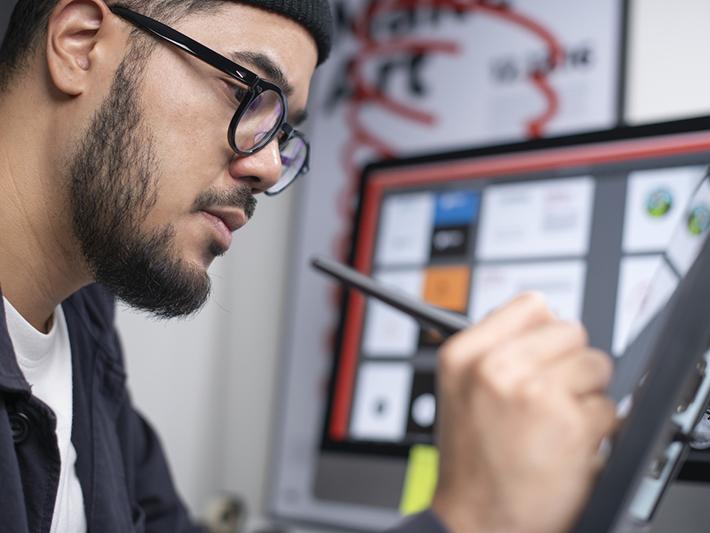
How to spark student start-ups
Universities are the ideal environment to turn ideas into businesses. Here’s how to encourage entrepreneurship and foster a start-up dynamic in your students
You may also like
Popular resources
During the 2022-23 academic year, 4,908 student start-ups were launched in UK universities, according to the most recent data. Clearly, students are interested in entrepreneurship, as they seek to put what they have learned into practice, start a new business and realise their ambitions.
While universities focus on knowledge creation and impactful research, they also play a key role in driving economic growth. Enterprise is now a common part of the university experience, whether it be from participation in formal courses as part of degree programmes or through a blend of skills-based or new venture-focused activity.
- The secrets of supporting successful student start-ups
- How to foster a start-up mindset in creative sector students
- How do you leap from research lab to Silicon Valley start-up?
Universities provide the environment where these ideas take shape and turn them into viable businesses. A start-up is the result of a student’s journey through higher education, where they develop entrepreneurial skills and learn about the business creation process.
Ideate, to create, to innovate
Entrepreneurship, in its many forms, helps students and future graduates to become well-rounded individuals who are more aware of business processes and markets, consumer preferences, and – crucially – societal need. At present, students at university are immersed in an enterprising environment and enjoy learning about entrepreneurship and putting it into practice.
However, starting a business begins with an idea, one that needs to be realistic, rational and relevant. It also needs to be boldly creative and innovative, to captivate society and sectors alike. The role of the university, as a place of both education and mentoring, is vital, to say the least.
Higher education encompasses a diverse array of disciplines, spanning subjects from drama to biology, fostering an environment where interdisciplinary collaboration can thrive. This diversity encourages creative thinking and collaboration, enabling entrepreneurial students to transform their ideas into successful commercial businesses.
We can use several tools and techniques to help support student entrepreneurs to develop, test and launch their business ideas, while acknowledging the realities of running a business. These ideas can be grouped into three main perspectives:
1. The individual/group perspective: first steps to enterprise
- Entrepreneurial development – role playing and experiential
- Creation and serious play
- Idea generation
- Problem-solving-based learning
- Applied skills and effectuation
- Prototyping – AI-assisted, 3D printing
- Pre-start-up incubation
2. The organisational perspective: planning and preparing
- Business modelling – reporting
- Canvas-style approaches – critiquing
- Capability and capacity – resourcing and reviewing
- Business acceleration
3. The market perspective: scanning and analysing
- Sector shifts and environmental analysis
- Consumer trends and perspectives
- Scenario and stakeholder analysis
- Financial forecasting and simulation
At our institution, all students, no matter their degree, can develop entrepreneurial skills through a range of modules. We also offer workshops, the annual Kick Start programme, and opportunities to compete for funding, helping students turn their ideas into real ventures. These activities are often part of formal courses and programmes, and are led by knowledgeable educators who possess experience of education and industry. This is critical in supporting students along stages of creativity to entrepreneurship. They champion ongoing, enterprising efforts.
As a result, student Fairouz Dridi was a finalist in the recent Converge Challenge competition with Screen Hustler, a networking and recruitment platform for the creative industries.
In 2023-24, we piloted the LightBulb Grant project, offering £250 grants to help students test their business ideas in the market. The goal was to keep the process simple and remove common barriers that can make early-stage entrepreneurship difficult. With an easy application and few restrictions, we awarded 40 grants, to support a variety of ideas, from a professional photography business to an African clothing brand and a start-up broadcast company.
Beyond universities, organisations such as NACUE, Converge (in Scotland), and the Global Entrepreneurship Week, with its international influence and numerous competition and awards opportunities, provide rewards for students’ achievements, spanning academic and industry activity and expertise.
The advent of AI – and its implications
Artificial intelligence is changing the way businesses operate. Academics are facing a number of challenges since its introduction – and have contemplated countless questions about what the technology means for the future.
However, for any start-up, it is a valuable and insightful tool. From organising and analysing data, to engaging with people and businesses to generating visual or audio content, the budding entrepreneur can add creative and fresh features to their business concept.
AI serves as a valuable resource for new organisations, providing cost-effective solutions that help entrepreneurs develop their ideas more efficiently. Entrepreneurship thrives on innovation, and success increasingly depends on the ability to integrate AI into business practices.
We can see the desire to adopt AI in new and potential start-ups within our current student business ideas and competitions. Some business development examples include using platforms and apps, aiming to target issues such as improving fitness and well-being, business productivity, customer engagement and organisational decision-making, which incorporate AI technologies.
However, the use of AI also highlights a few concerns for entrepreneurs to bear in mind. For example, does using AI technology limit the novelty of the business idea, product or service, making it less original? Does it prevent the entrepreneurial student from fully developing their skills experientially, productively and effectively? If the student is relying on the sometimes generalised information produced by AI, is the context or niche of the start-up lost, or watered down? In other words, are start-ups at risk of relying too much on AI-generated insights rather than real market engagement?
For enterprising universities, AI has its merits as part of start-up strategies in terms of research and design. However, successful start-ups must balance technology with human creativity and real-world business understanding.
Evaluating the enduring relationship between universities and student enterprise
Student start-ups, with their fresh ideas and energetic approach, are as impressionable as they are inspiring. Educators have a duty of care to ensure that students get the most out of their entrepreneurial journeys and help them to navigate the challenges of business creation.
Entrepreneurial cultures reside at most universities, and are big players in the ecosystem agenda at national levels. Universities play a crucial role in providing mentorship, connecting students with industry partners and creating opportunities for invention and innovation.
The range of practices that are at the disposal of universities in today’s more enterprising sector aligns well with the demands of the market. However, as they continue to support student entrepreneurship, they must align their efforts with national strategies, emerging technologies and societal needs. Encouraging start-ups is not just about business success – it’s about creating an environment where students feel empowered to innovate, take risks and shape the future of enterprise.
Robert Crammond is a senior lecturer in enterprise and William Shepherd is a lecturer in enterprise, both at the University of the West of Scotland.
If you would like advice and insight from academics and university staff delivered direct to your inbox each week, sign up for the Campus newsletter.





Comments (0)
or in order to add a comment